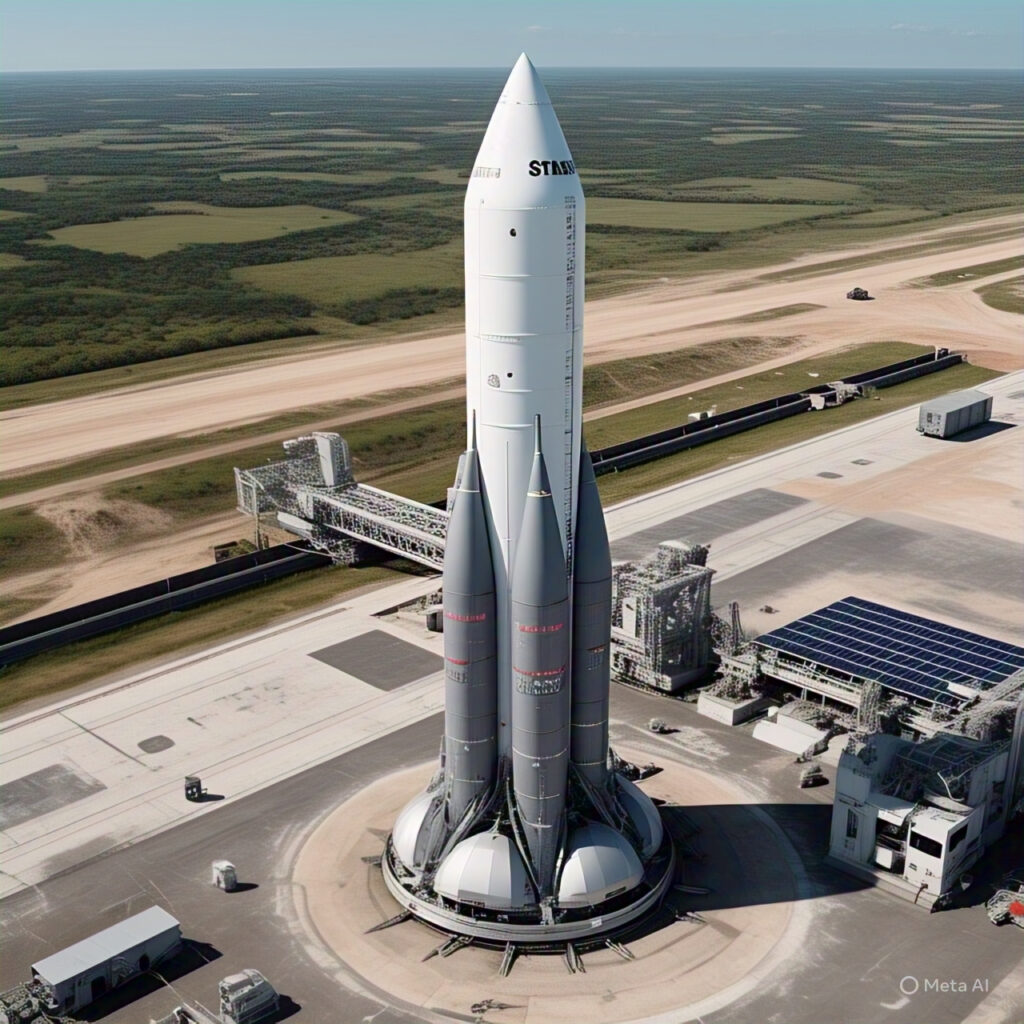
Falcon 9 ready at Cape Canaveral for the Starlink Group 15-7 mission launch, June 2025.credit by meta ai
Discover the full mission details of SpaceX’s Starlink Group 15-7 launch, including launch date, Falcon 9 rocket info, satellite count, orbit path, and mission goals. A deep, fresh look at this Starlink 2025 deployment.
Introduction: What’s New in Starlink Group 15-7?
In June 2025, SpaceX is all set to launch Starlink Group 15-7, another vital batch in its ever-growing low Earth orbit (LEO) satellite internet constellation. Unlike the generic space blogs flooding the web, this post brings you an exclusive, deeply detailed analysis of the Starlink Group 15-7 mission — written for curious minds and SEO visibility alike.
This isn’t just another launch — it’s part of the 15th orbital shell expansion, aimed at supercharging Starlink’s global coverage. Let’s unpack the launch date, payload specs, rocket used, mission goals, and why this launch could be key for SpaceX’s satellite dominance.
If you’re interested in other recent Starlink missions, don’t miss this:
👉 SpaceX Falcon 9 Starlink Block 5 Launch Full Details
What Is Starlink and Why Is This Mission Important?
Starlink is SpaceX’s ambitious project to provide high-speed internet globally using thousands of small satellites in LEO. As of mid-2025, SpaceX has launched over 6,000 satellites, and the Group 15-7 launch is a continuation of its targeted shell expansion — a structured orbit path with optimized satellite placement.
This launch holds significance because:
- It enhances coverage in underserved areas
- Supports Starlink Roaming and maritime aviation services
- Helps in latency reduction and global handoff
Starlink Group 15-7 Launch Date and Time
Here’s what we know about the Starlink Group 15-7 launch date so far:
- Expected Launch Date: Late June 2025 (tentative – TBA by SpaceX)
- Backup Date: Within 48 hours post-schedule if weather disrupts
- Time Window: Typical 22:00 to 02:00 UTC range
Watch live on SpaceX official launch page when announced.
Launch Vehicle: Falcon 9 Block 5
- Rocket: Falcon 9 Block 5
- Booster Reuse: Likely reused booster (e.g., B1069 or B1081)
- Liftoff Site: Cape Canaveral Space Force Station (SLC-40), Florida
- Booster Landing: Autonomous Spaceport Drone Ship (ASDS) “Just Read the Instructions” in the Atlantic Ocean
Payload: What’s on Board?
Starlink Group 15-7 is carrying:
- Total Satellites: ~22 Starlink V2 Mini satellites
- Satellite Type: V2 Mini (more bandwidth, laser links, compact design)
- Orbit Altitude: 530 km circular orbit
- Orbit Inclination: ~53 degrees
These satellites are optimized for laser communication and serve areas where traditional internet infrastructure is weak.
Also read:
Why Starlink Matters in Rural India and Developing Nations
What Does “Group 15-7” Mean?
Let’s break it down:
- Group 15: Refers to the 15th orbital shell in Starlink’s deployment strategy
- Launch 7: The 7th launch targeting this shell
This shell is part of a structured constellation geometry designed to reduce latency and ensure seamless switching between satellites during user movement.
Chart: Starlink Group 15-7 Mission Overview
| Parameter | Details |
|---|---|
| Mission Name | Starlink Group 15-7 |
| Rocket | Falcon 9 Block 5 |
| Launch Date | Expected Late June 2025 |
| Launch Site | Cape Canaveral SLC-40, Florida |
| Booster Landing | ASDS “Just Read the Instructions” |
| Payload | ~22 Starlink V2 Mini Satellites |
| Orbit Altitude | ~530 km LEO |
| Satellite Features | Laser links, more capacity |
| Main Goal | Expand global Starlink internet shell 15 |
How Will Starlink Group 15-7 Improve Global Internet?
The impact of this launch will be felt across:
- Rural & Remote Internet Access
- Starlink Direct-to-Cell Beta Services
- Low-Latency Mesh Expansion
- Disaster-Resilient Emergency Internet
📄 Official filing of satellite coordination and group details:
➡️ FCC Starlink Satellite Registry
Related Blog for Readers (Tumhari Site Se):
Starlink V2 vs V2 Mini – What’s the Difference
Future-Proofing Starlink: What’s Next?
Starlink Group 15-7 is just one of over a dozen launches planned for Shell 15. In 2025 alone, SpaceX is aiming to cross 144 missions — many of them tied to Starlink expansion.
By 2027, Musk’s team plans to have 12,000+ operational satellites, making it the world’s largest internet constellation, beating OneWeb and Kuiper.
Final Thoughts
With Starlink Group 15-7, we aren’t just seeing another rocket launch — we’re witnessing the future of global, low-latency, secure internet becoming a reality. SpaceX continues to lead in rapid deployment, innovation, and accessibility.
🔭 For more deep-dive blogs, head to veenaspace.com – your trusted destination for space news with a desi twist and SEO-smart content!
